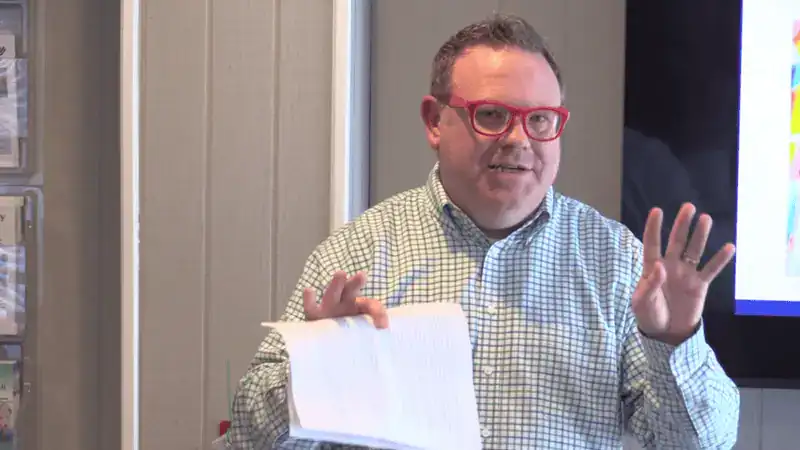You’ve probably heard someone say, “Failure is not an option.” It sounds powerful, maybe even brave. But what if that popular phrase is actually holding us back? What if failure is not only an option—but also one of the most important parts of learning and growing?
Here’s the truth: no one likes to fail. Whether it’s missing a goal in soccer, forgetting your lines in a school play, or getting a poor grade on a test, failure can feel embarrassing or even discouraging. But failure is something we all experience at some point. Instead of avoiding it or feeling ashamed, what if we saw it as a valuable opportunity?
The truth is that failure has a lot to teach us. When we change how we think about it, failure can become a powerful tool for learning, creativity, confidence, and connection.
Learning About Our Strengths—and Weaknesses
One of the biggest benefits of failure is how much it can teach us about ourselves. When things don’t go the way we hoped, it’s a chance to stop and reflect. What went wrong? What could we do differently next time? These are the kinds of questions that help us grow.
For example, if you studied for a test but didn’t do well, it might be a sign that your study habits need adjusting. Maybe you need more time, better notes, or a different way of reviewing the material. Failing helps us spot areas we can improve, and that’s the first step toward getting better.
It’s also a reminder that nobody is perfect—and that’s okay. As long as we’re trying and learning, we’re moving forward. Famous inventor Henry Ford once said, “Failure is simply the opportunity to begin again, this time more intelligently.” And he knew a lot about failure. Before building the Ford Motor Company, he had several business ideas that didn’t work out. But he didn’t quit—he learned and kept going.
Fuel for Motivation and Perseverance
Failure isn’t fun, but it can light a fire inside us. When something doesn’t go our way, it challenges our determination. Do we give up, or do we try again?
People who learn from their failures often come back stronger. Instead of letting mistakes defeat them, they use failure as a reason to work harder and smarter. That determination builds something called grit—the ability to keep going even when things are tough.
Athletes often talk about failure as a key part of their training. Basketball legend Michael Jordan once said, “I’ve missed more than 9,000 shots in my career. I’ve lost almost 300 games… I’ve failed over and over and over again in my life. And that is why I succeed.” His failures didn’t stop him—they pushed him to improve.
Failure Sparks New Ideas and Creative Thinking
When something fails, it’s often a sign that the current approach is just not working. While that can be frustrating, it’s also a chance to try something new.
Imagine you’re building a tower out of blocks, and it keeps falling over. Eventually, you’ll start trying different designs—some you might never have thought of if the first one had worked. That’s creativity in action.
Failure forces us to think differently. It makes us ask, “What else can I try?” That’s how new ideas are born. Some of the world’s most successful inventions were created after many failed attempts. Thomas Edison tried thousands of ways to create a working light bulb. Instead of seeing those failures as wasted time, he said, “I have not failed. I’ve just found 10,000 ways that won’t work.”
When we fail, we step outside our comfort zone. We become more willing to take risks and explore fresh ideas. That kind of thinking can lead to powerful discoveries in school, work, and life.
Building Character and Confidence
Failure doesn’t just teach us new skills or help us think creatively—it also builds character.
Each time we fail and keep going, we prove something to ourselves. We learn that we’re strong, that we can handle disappointment, and that we don’t give up easily. That builds confidence. It shows us that we’re capable of growing and improving.
Failing also helps us understand what others might be going through. When we’ve faced setbacks ourselves, we become more understanding and supportive of others who are struggling. That empathy strengthens our relationships and builds community.
Sharing our failures can actually bring people closer together. Whether it’s friends, family, classmates, or teammates, opening up about our mistakes can make others feel less alone in their own challenges. It shows that failing doesn’t make someone weak—it makes them human.
Famous Failures, Big Lessons
History is full of stories of people who failed before they succeeded. Walt Disney was once told he lacked creativity. Oprah Winfrey was fired from her first television job. Author J.K. Rowling had her Harry Potter manuscript rejected by over a dozen publishers. These setbacks could have ended their careers—but instead, they became part of their journeys to success.
What do all these people have in common? They didn’t let failure define them. They used it to learn, grow, and improve. That’s something we can all do, no matter how big or small the failure may seem.
Turning Failure Into Your Superpower
So, the next time you face failure—whether it’s in school, sports, friendships, or anything else—try not to see it as the end. Instead, see it as the beginning of something new.
Failure can lead to powerful growth. It can help you become more creative, more resilient, and more confident. It can teach you about yourself and help you connect with others in meaningful ways.
The real failure isn’t falling short—it’s refusing to learn from the experience. If you pick yourself back up, reflect on what happened, and try again, you’re already succeeding.
Don’t fear failure. Embrace it. Because sometimes, the best way to move forward is by first falling down—and then rising up, stronger than before.




